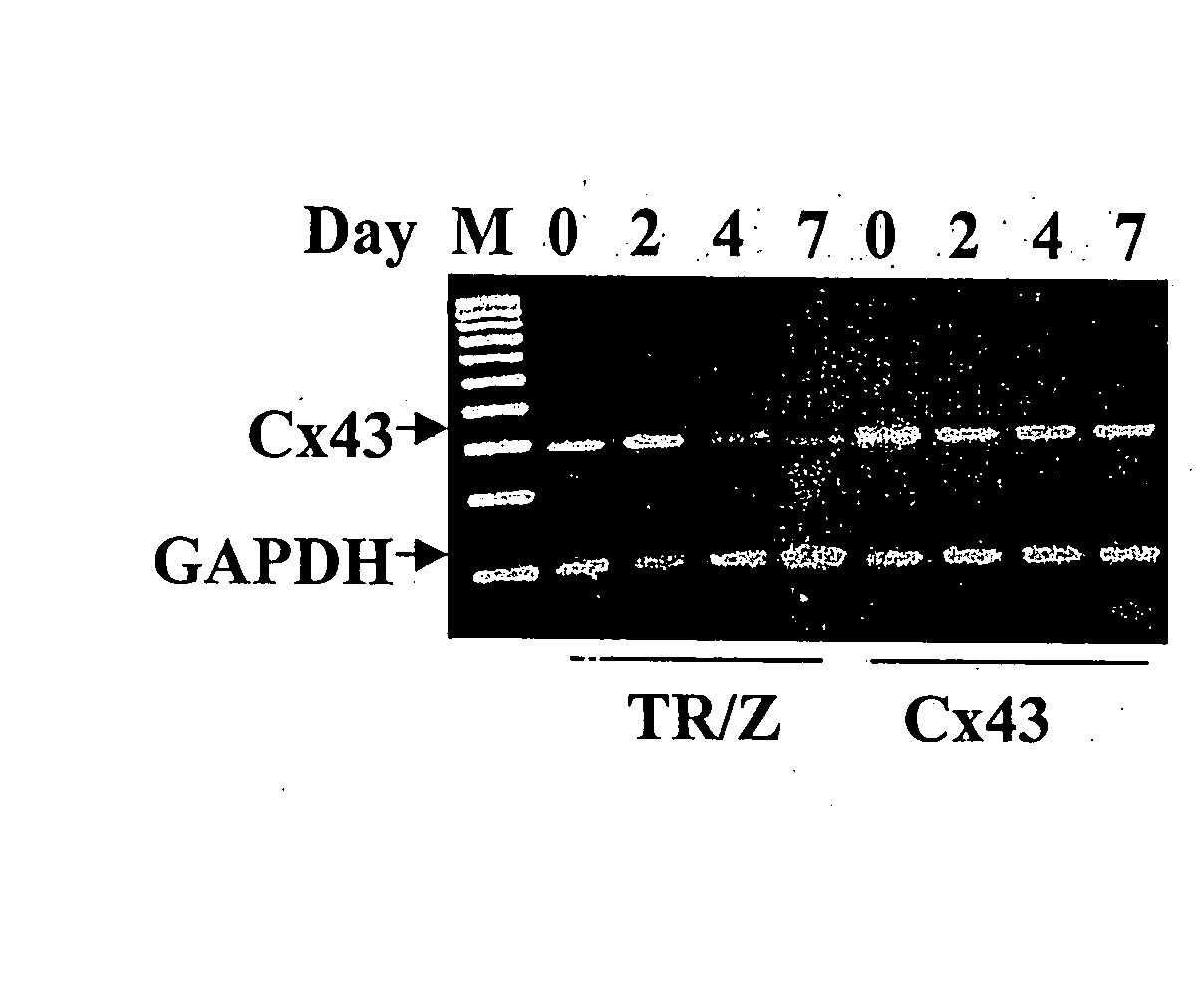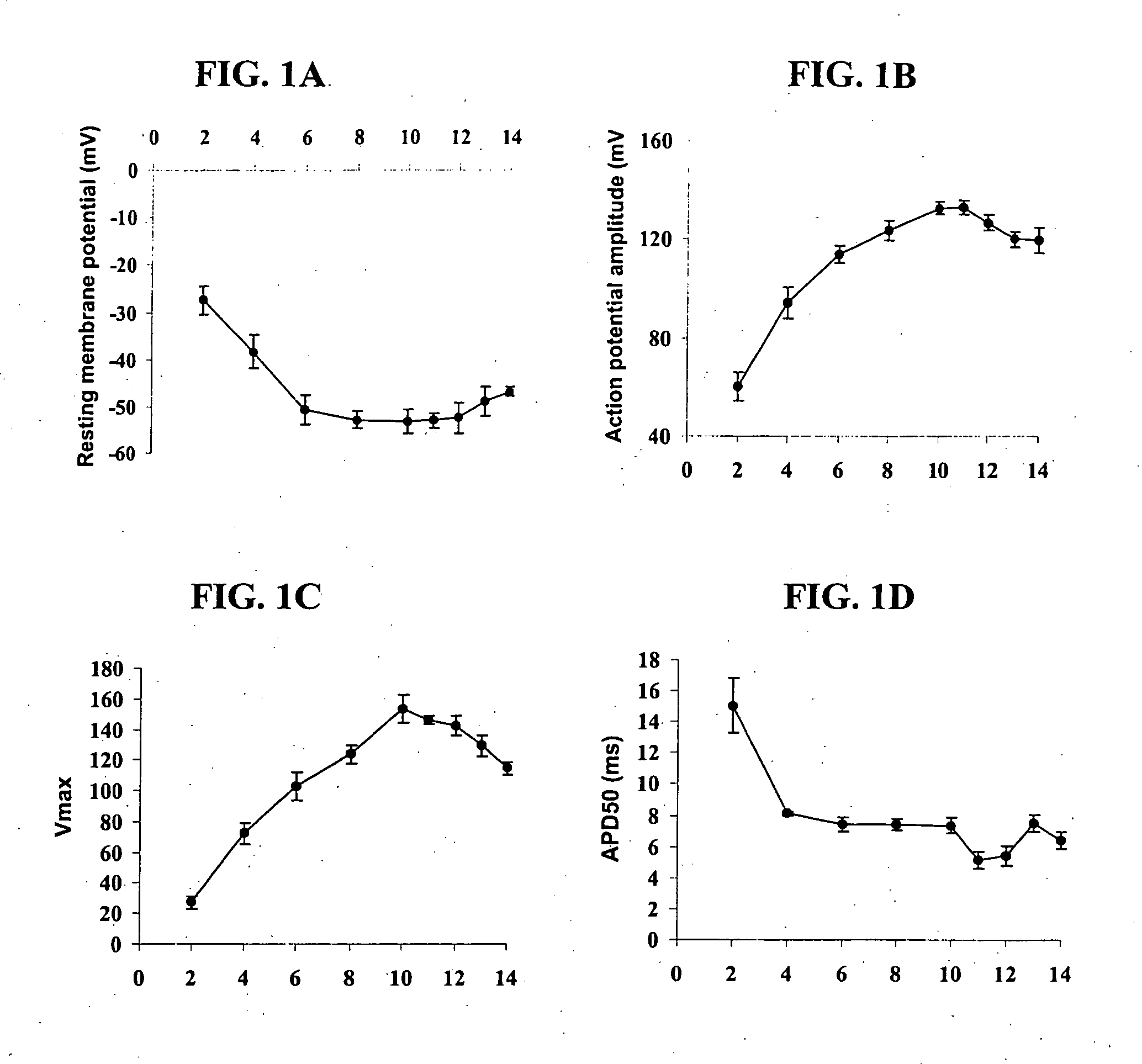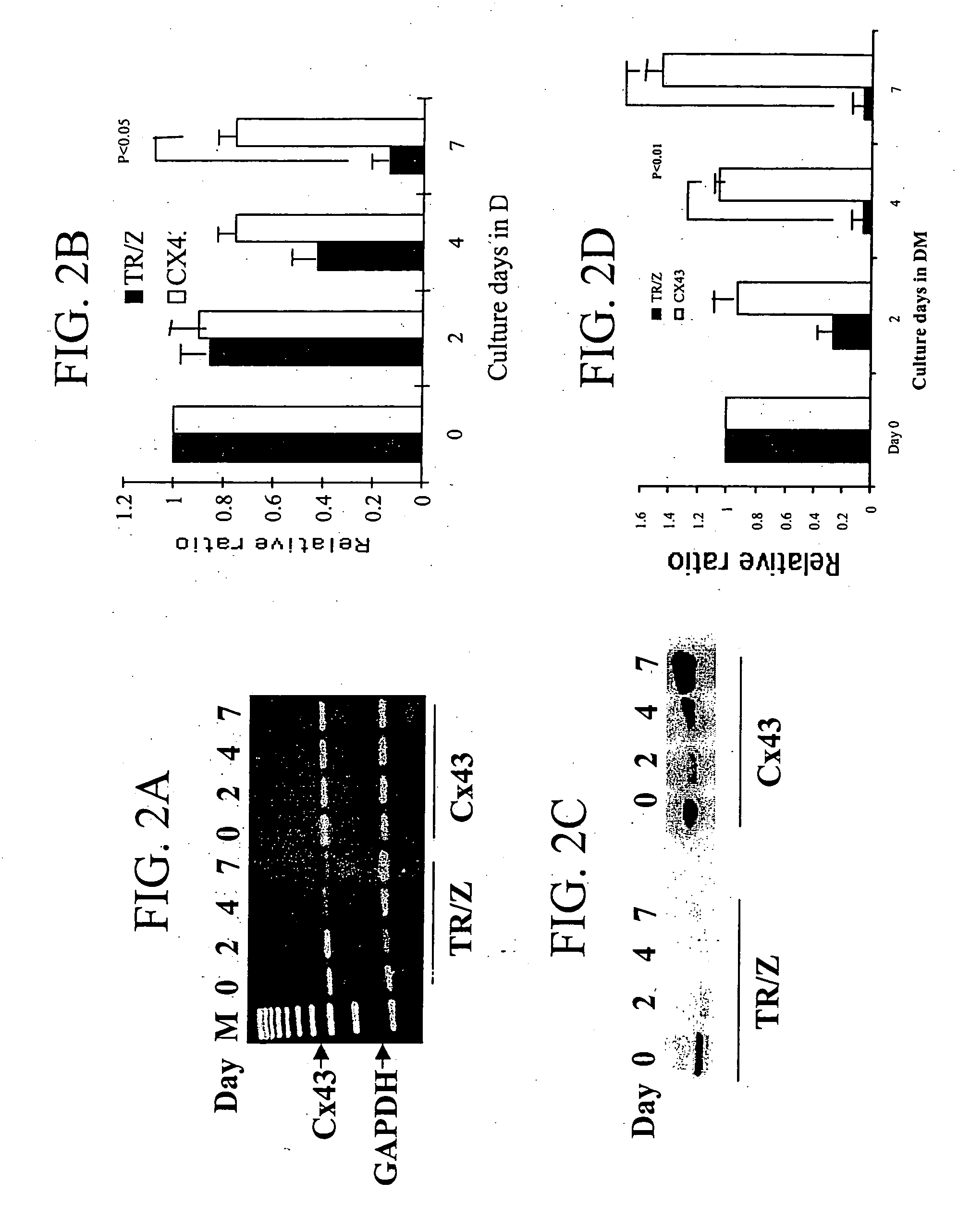Methods and compositions for correction of cardiac conduction disturbances
a technology of conduction disturbance and composition, applied in the field of treatment of cardiac conduction disturbance, can solve the problems of failure to impede and prevent morbidity and mortality, surgical techniques can fall well short of the therapeutic goal of restoring cardiac function in the patient, and the effect of reducing the effect of cardiac function
- Summary
- Abstract
- Description
- Claims
- Application Information
AI Technical Summary
Benefits of technology
Problems solved by technology
Method used
Image
Examples
example 1
Characterization of Skeletal Myoblasts / Myotubes Ability to Electrically Excite Cardiac Tissue
[0107] Tissue engineering techniques are attractive alternatives to conventional therapies for the treatment of end stage heart disease and conduction abnormalities. Cell transplantation offers the promise of restoring function to patients.
[0108] Biopsied skeletal muscle have satellite cells, skeletal myoblasts, which are able to divide and multiply. Skeletal myoblasts initially express Cx43. However, as the cells mature and differentiate into myotubes (the basic unit which leads to the contractile muscle fiber), Cx43 expression is the least in the skeletal myotubes.
[0109] Skeletal myoblasts and myotubes have different cellular electrophysiological characteristics. Characterization of the action potential parameters during different periods of myoblasts differentiation to myotubes were determined. Skeletal myoblasts were isolated by enzymatic dispersion from the hind limb muscle of 2-5 da...
example 2
Electrophysiologic Consequences of Skeletal Muscle Transplantation
[0121] To assess the electrophysiologic consequences of skeletal muscle transplantation into the myocardium, we utilized an in vivo model to assess cardiac conduction. The feasibility of gene transfer to specific areas of the cardiac conduction system has been previously demonstrated (Lee et al. 1198 PACE 21-II:606; Gallinghouse et al. November 1996 Am Heart Assoc.; U.S. Pat. No. 6,059,726). For example, the highly efficient and specifically localized expression of recombinant beta galactosidase in the AV node of rats and pigs has been described. The accuracy and reproducibility of AV nodal injections has been validated by the production of AV block in rats (Lee et al. 1998 J Appl Physiol. 85(2): 758-763). As an electrically insulated conduit for electrical transmission between the atrium and the ventricle, the AV conduction axis is in a strategic position for the study of cardiac electrophysiology.
[0122] To determi...
example 3
Expression of Gap Junction Proteins
[0132] Connexin 43-encoding nucleic acid was introduced into skeletal muscle cells as described above. The formation of functional gap junctions between recombinant Cx43-expressing myoblasts or recombinant Cx43-expressing myoblasts which have differentiated into myotubes with other types of myoblasts or myotubes was evaluated. A control (TR / Z) myoblast cell, which expresses Cx43 initially and then down regulates Cx43 expression during differentiation into myotubes was utilized as a control for functional gap junctions and dye transfer in control myoblast but not in control myotubes.
[0133] In FIGS. 2A-2D, the Cx43 mRNA (FIGS. 2A and B) and protein changes (FIGS. 2C and D) in control cells and Cx43 cells are shown. FIG. 2A is a photograph of an electrophoresis agarose gel of RT-PCR experiments indicating the mRNA Cx43 levels of control cells (TR / Z) and recombinant Cx43-expressing cells at day 0, 2, 4 and 7. FIG. 2B is a graphical representation of ...
PUM
| Property | Measurement | Unit |
|---|---|---|
| pH | aaaaa | aaaaa |
| densities | aaaaa | aaaaa |
| electrical | aaaaa | aaaaa |
Abstract
Description
Claims
Application Information
 Login to View More
Login to View More - R&D
- Intellectual Property
- Life Sciences
- Materials
- Tech Scout
- Unparalleled Data Quality
- Higher Quality Content
- 60% Fewer Hallucinations
Browse by: Latest US Patents, China's latest patents, Technical Efficacy Thesaurus, Application Domain, Technology Topic, Popular Technical Reports.
© 2025 PatSnap. All rights reserved.Legal|Privacy policy|Modern Slavery Act Transparency Statement|Sitemap|About US| Contact US: help@patsnap.com



